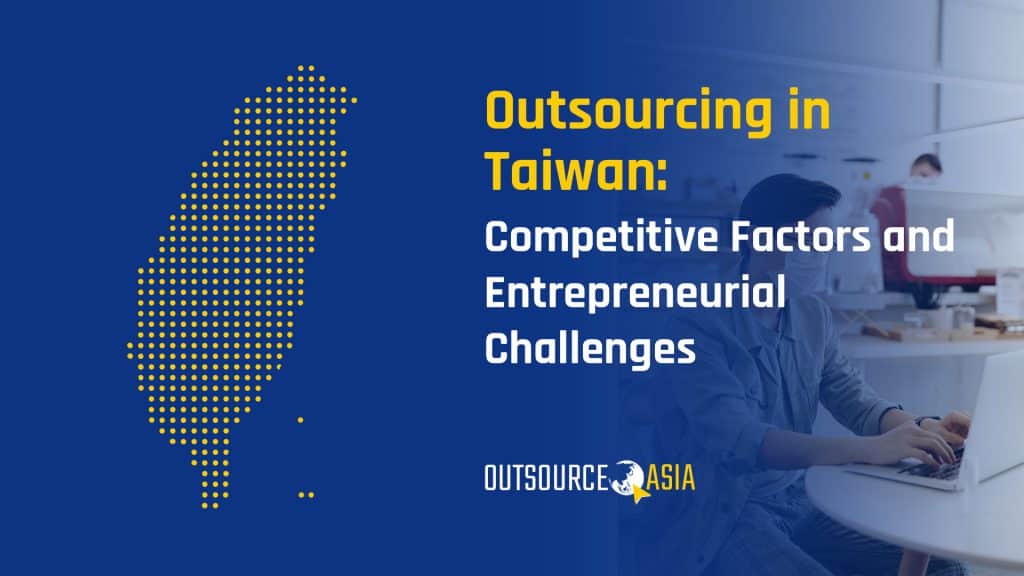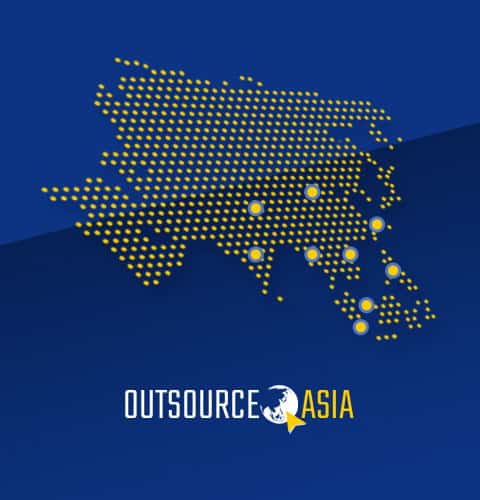Taiwan is among Asia’s most promising outsourcing destinations today. From 2013 to 2016, the only Chinese democratic nation has consistently ranked among Tholons’ list of Top 100 Outsourcing Destinations and was among the five best countries for outsourcing in 2019. Considered one of the four Asian tigers, Taiwan is also positioned as one of the top 50 SUPER CITIES for digital innovation, enterprise success, and business outsourcing.
Occupying a total area of approximately 36,000 square kilometers (14,400 square miles), the land formerly known as Formosa is only slightly bigger than the US state of Maryland and half the size of Tasmania and Scotland. At least 23.8 million people live here with 72 percent belonging to the working age population. Taiwan has flourishing services, manufacturing, agriculture, and imports and exports industries, all contributing to its GDP of $600 million which ranks 22nd out of 196 countries worldwide. The International Monetary Fund (IMF) considers Taiwan as an advanced economy, the fifth among 42 countries in the Asia-Pacific region and the top 11th freest economy in the 2020 Index of Economic Freedom.
However, with a slow population growth rate of less than 0.2 percent and 14 percent ageing index that is rapidly increasing, this will have a significantly negative impact on the future rate of productivity and economic growth. Thus, the government is pushing skilled outsourcing professionals to fill in the growing worker vacancies in management, research and development, and technical sectors.
Development of Taiwan’s Outsourcing Market
Taiwan is poised to be the next Business Process Outsourcing (BPO) capital of Asia, currently ranking 15th of 189 economies and 14th of 82 countries, respectively according to the 2020 Ease of Doing Business Index and the 2020 Business Environment Rankings where it ranks first.
When Taiwan joined the World Trade Organization (WTO) in 2002 and became a member of the global industrialized system, it paved the way for the promotion of innovation-oriented policies, bringing to a whole new level its decades-long proactive approach to the development of emerging technologies as well as indicating the country’s serious intentions to become an international commercial force and a global technological powerhouse.
In 2016 Taiwan set the ambitious goal of becoming the Silicon Valley of Asia and implementing a $350 million government-funded plan designed to position the country as a global IoT market and as a developmental base for young innovators and entrepreneurs in Asia-Pacific while continuously enjoying mutually beneficial linkages with multinational corporations, foreign investors, and other governments.
This commitment has driven to the following achievements:
- A globally renowned $82 billion ICT industry even bigger than China’s
- The world’s largest semiconductor manufacturing economy
- Ranks third highest in the world for research and development (R&D) expenditure at $20.55 billion
- An impressive $39 billion worth of foreign investment, mostly focused on battery and engine manufacturing
- Highest smartphone penetration in Asia-Pacific and second highest in the world with more than 97 percent digital ownership for the entire population
- Substantial infrastructure investment through its ‘i-Taiwan 12 Major Infrastructure Projects’ valued at $120 billion
- One of the world’s leading exporters of electronic circuit components and services valued at $100 billion
- The fastest internet speed among all nations, with average download speed of 85 Mbps
- The highest number of patents per population, higher than Israel and the United States
- Prominently positioned within Thomson Reuters’ Top 100 Global Tech Leaders
- Continuous investments in robotics, cloud computing, artificial intelligence, and Internet of Things (IoT) dubbed as Taiwan 4.0
- Winner of the 2019 IDC Smart City Asia Pacific Awards (SCAPA) for promotion and development of smart cities
- First-in-Asia trillion-dollar investment in clean energy project as part of denuclearizing by 2025
- Impressive economic growth in 2019, better than the rest of the pack of Asia’s four tigers
- Pursuing cybersecurity excellence with a $28 million budget allocation for bolstering information security, network security, and password security
- Strong foreign direct investment (FDI) flow, with $100 billion worth of FDI stock in 2019
COMPETITIVE OUTSOURCING FACTORS
A High-Tech Workforce
Taiwan has a 98 percent literacy rate and ranks 4th in math and science scores worldwide. At least 45 percent of the population between the ages 25 and 64 hold a university or advanced degree. Universities produce at least 10,000 graduates in courses such as information systems management and computer science. Most job seekers can speak English and/or Mandarin Chinese and have the advantage of a few years’ worth of startup experience under their belt.
Full Government Support
The Taiwanese government prioritizes entrepreneurship and business outsourcing through generous funding for startups, reasonable immigration policies for foreign investors, and business-friendly fintech regulatory sandbox legislation. The Open Data initiative affirms the goal for transparent digital governance and to become the epicenter for AI and IoT development.
Smart Machinery Development
Taiwan is considered the world’s center of machinery plants, most of which are situated in Taichung City’s ‘Golden Valley’. Not less than 13,000 factories can be found in the country with almost half a million skilled workers employed here. As an important milestone for Taiwan’s Industry 4.0, the Smart Machinery Promotion Office in Taichung will prioritize development for five technology industries including automated manufacturing equipment, defense technology, biotech, green energy, and Internet of Things (IoT).
ENTREPRENEURIAL CHALLENGES TO OUTSOURCING
Ageing Population
Taiwan’s birth rate is one of the lowest in the world and has been for the last seven years. Without intervention, a population decline can lead to decrease in workforce productivity as well as government funding for key industries to make way for expenditure for the elderly.
Growing Cybercrime Problem
From malware infections and ransomware attacks to relentless data breaches and privacy issues associated with the Dark Web, cybercrime is a growing problem in Taiwan. The government has to continuously develop its IT security industry to prevent cybercriminals from causing significant damage and losses to personal information and property as well as business operations.
Conclusion
Taiwan offers competitive outsourcing advantages but you also have to consider your company’s specific needs and requirements before entering into an agreement with an outsourcing service provider in the country. If you need more information on finding the right outsourcing partner for your business, read more here.



